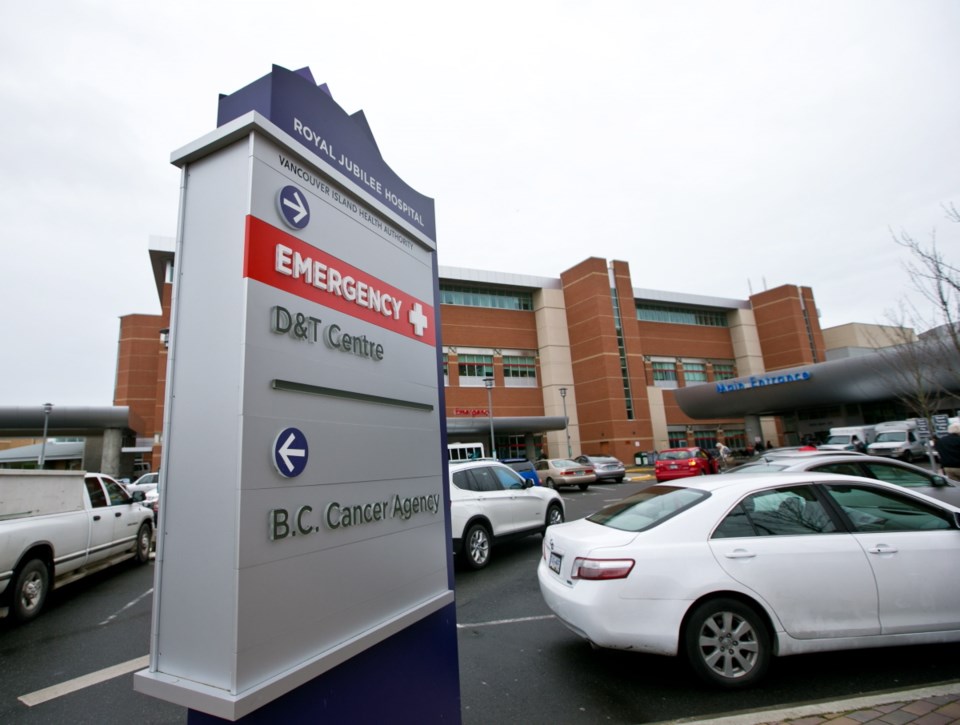Island Health is informing family doctors that until a backlog of 18,000 ultrasound orders eases, new routine scan requests will not be booked.
“That number has been climbing since I started this job four months ago,” said Scott McCarten, Island Health’s director of medical imaging.
The growing wait-list is due to a lack of sonographers in B.C. to perform the scans.
“This has been a long-standing issue that is not unique to Island Health,” McCarten said. “It’s a provincial issue. All the health authorities are in the same boat.”
McCarten said he started informing doctors at the end of August. “The intent was to inform physicians that because of the lack of sonographers, and the fact that the sonographers we do have are dedicated to urgent cases, that we currently could not provide an appointment date for routine ultrasound requests.” McCarten also said doctors “should consider whether an alternate test or provider may be satisfactory.”
About 55 per cent of the 18,000 backlogged tests are categorized as routine scans, said McCarten, historical data show.
There’s typically a one-day turnaround for an “urgent” scan such as a cancer query, while “as soon as possible” scans — for acute abdominal pain, for example — can take seven to 10 days. A “semi-urgent” scan, such as a rotator cuff tear, can have waits of up to three months.
Ninety per cent of patients wait up to five months for a “routine” scan. The longest wait on the south Island was 11 months, McCarten said.
So-called “timed” ultrasounds are not affected and are performed as scheduled. The majority of those are for obstetrical patients and others requiring regular tests — to follow a pregnancy or to follow an ovarian cyst or renal colic, for example.
There are only 30 seats in the province’s sole two-year course for sonographers at B.C. Institute of Technology in Vancouver.
The health authority has been working with BCIT, the Ministry of Health, Ministry of Advanced Education and the province’s other health authorities to come up with longer-term solutions, McCarten said.
BCIT is expanding its full-time two-year program by two seats and has created a one-year fast-track program, starting in January, with 16 spaces for active and certified health authority X-ray technologists and cardiac sonographers. They will get additional training, allowing them to write the Canadian and American certification exams for sonography.
“It essentially cuts that training time in half and, because those techs are already employees, it’s far more likely they’ll stay with us when they complete their training,” McCarten said. “They’ll be finished by December [2017].”
Val Avery, president of the Health Sciences Association, which represents more than 17,000 health care and social services professionals in B.C., said the shortage of sonographers reflects a lack of human resources planning. “There’s been some work done, but it just hasn’t been enough,” Avery said.
One challenge is that sonographers in the private sector and in other provinces are paid more. The starting wage in private clinics is $10.64 more an hour than the starting wage of $29 in the public system, Avery said. In Alberta, the starting wage is $40 an hour compared with $29 in B.C., plus signing bonuses, she said.
“We have to provide a market adjustment so there is parity with private clinics and provinces next door,” Avery said.
Long-term solutions include expanding fast-track training to hospitals as well as opening up another training school outside the Lower Mainland, she said.



